

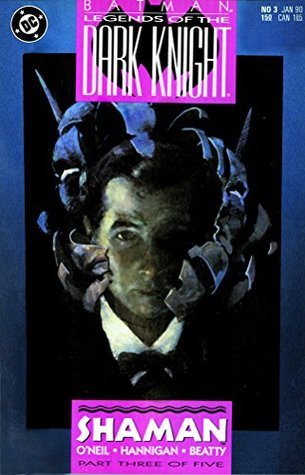
Books in series

Batman
Legends of the Dark Knight #1
1989

Batman
Legends of the Dark Knight #2
1989

Batman
Legends of the Dark Knight #3
1989
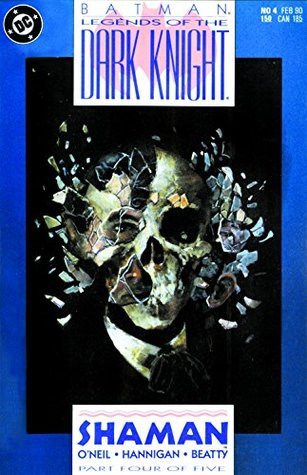
Batman
Legends of the Dark Knight #4
1990
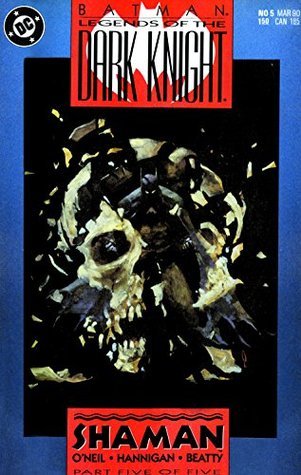
Batman
Legends of the Dark Knight #5
1990
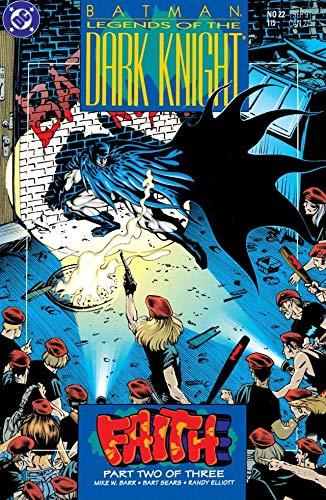
Batman
Legends of the Dark Knight #22
1991
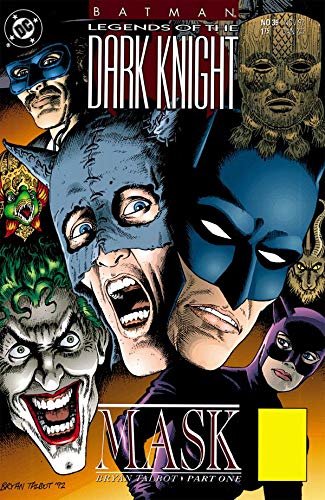
Batman
Legends of the Dark Knight #39
1992
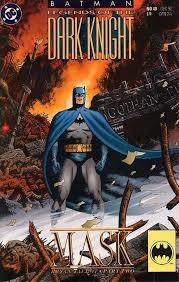
Legends of the Dark Knight #40
1992
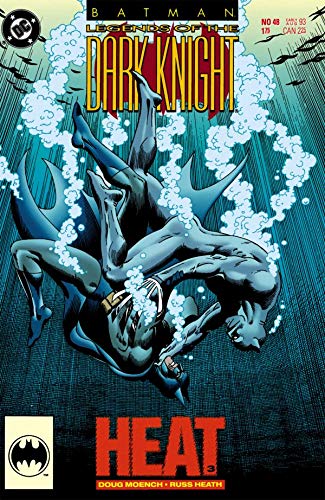
Legends of the Dark Knight #48
1993
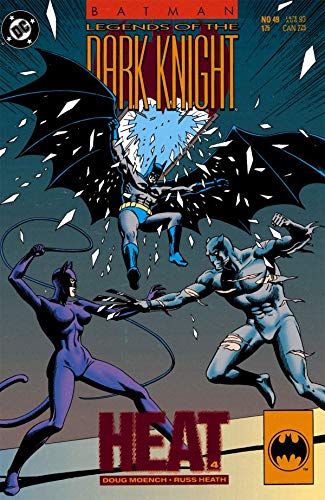
Legends of the Dark Knight #49
1993

Batman
Legends of the Dark Knight #54
1993
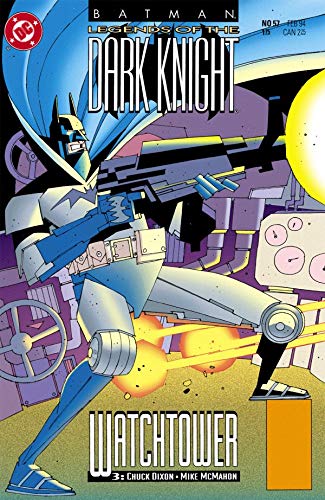
Batman
Legends of the Dark Knight #57
1994
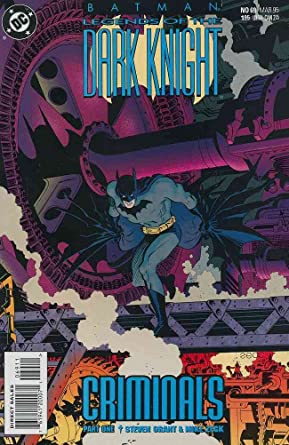
Batman
Legends of the Dark Knight #69
1995
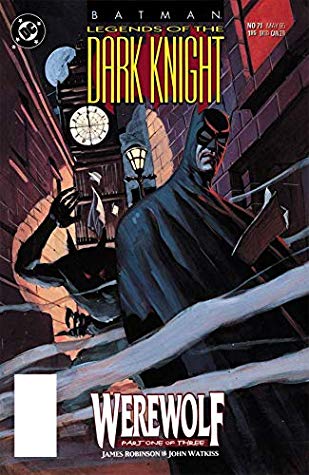
Legends of the Dark Knight #71
1995
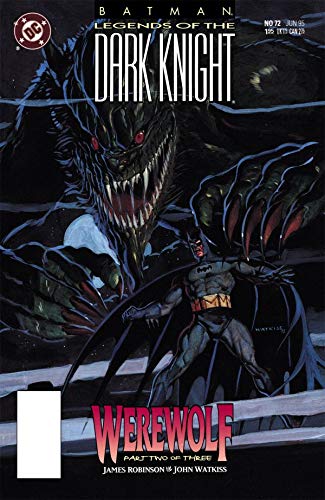
Batman
Legends of the Dark Knight #72
1995
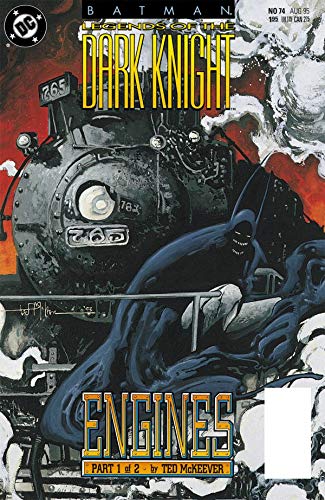
Batman
Legends of the Dark Knight #74
1995
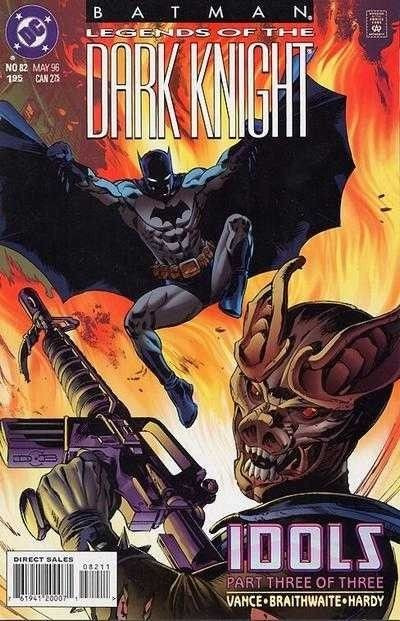
Batman
Legends of the Dark Knight #82
1996

Batman
Legends of the Dark Knight #86
1996
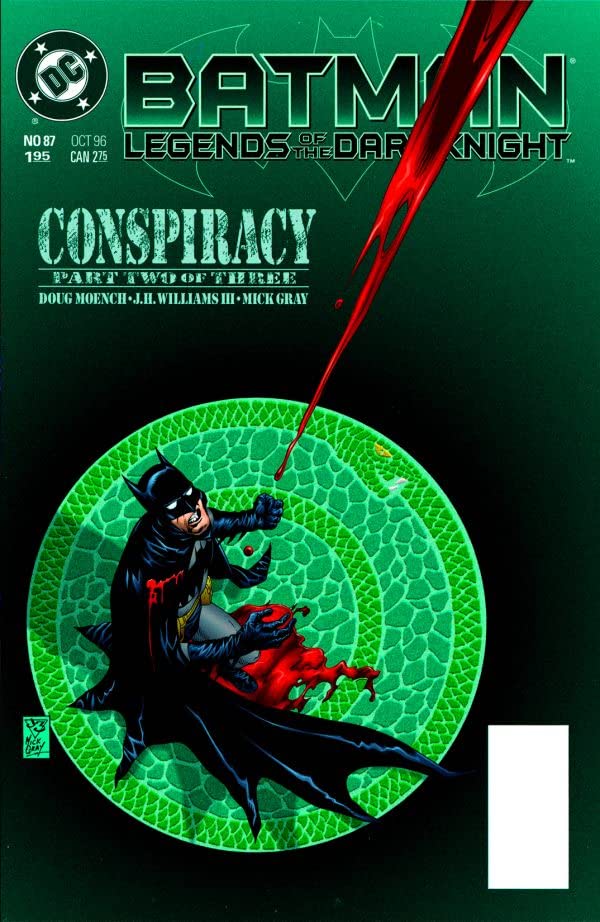
Batman
Legends of the Dark Knight #87
1989
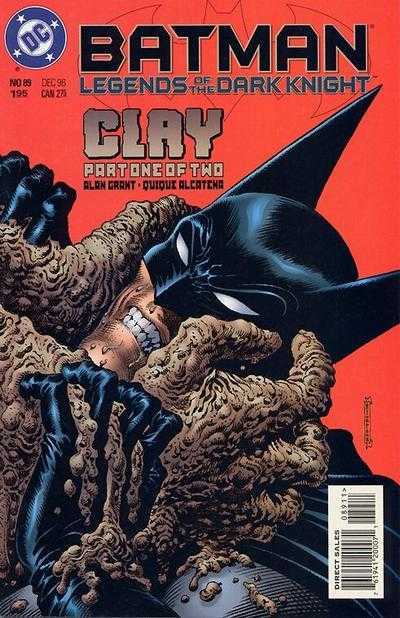
Batman
Legends of the Dark Knight, Dec 1996
1989
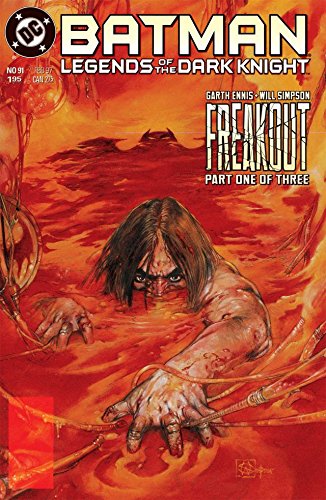
Batman
Legends of the Dark Knight #91
1996
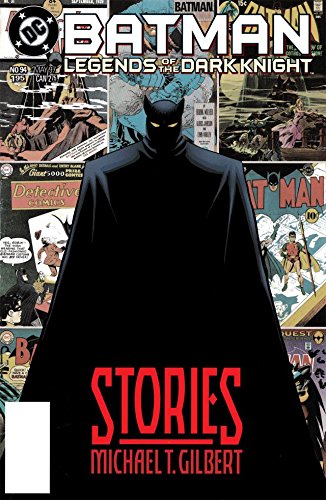
Batman
Legends of the Dark Knight #94
1997
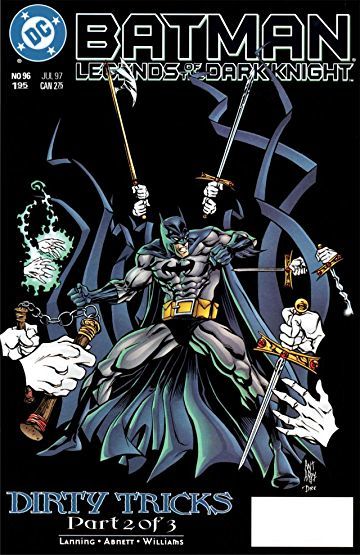
Batman
Legends of the Dark Knight #96
1997
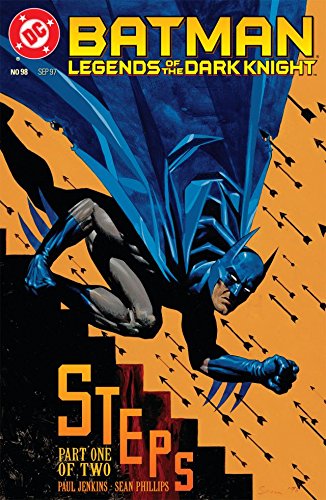
Batman
Legends of the Dark Knight #98
1997
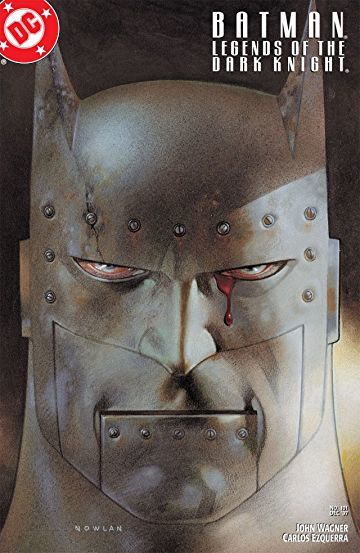
Batman
Legends of the Dark Knight #101
1997
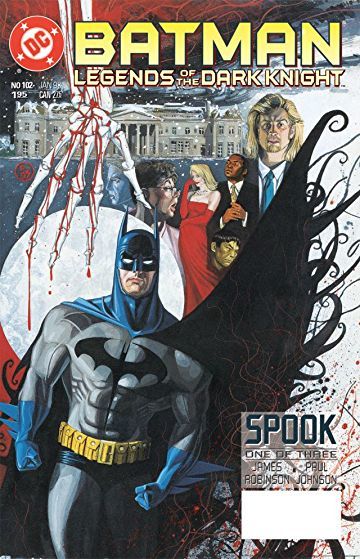
Batman
Legends of the Dark Knight #102
1997
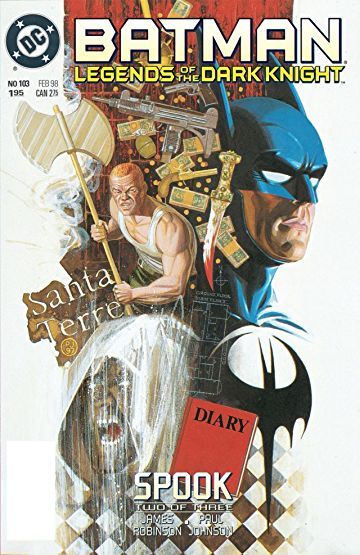
Batman
Legends of the Dark Knight #103
1997

Robin
The Teen Wonder
2009

Batman
Legends of the Dark Knight #107
1998

Batman
Legends of the Dark Knight #108
1998
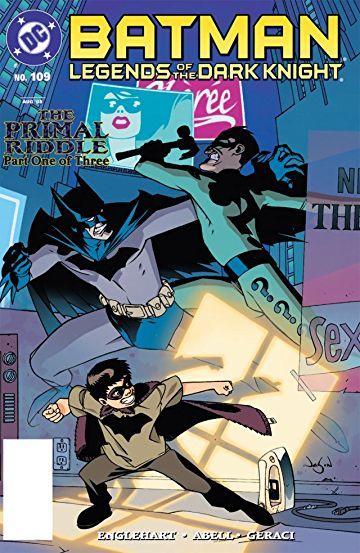
Batman
Legends of the Dark Knight #109
1998
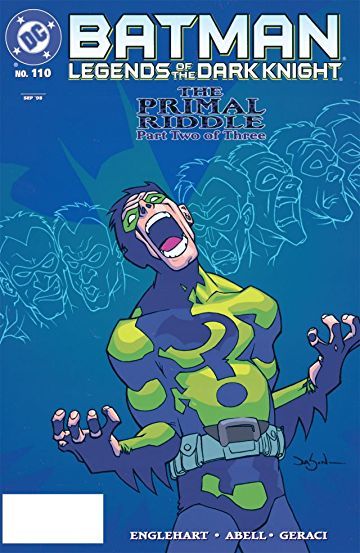
Batman
Legends of the Dark Knight #110
1998
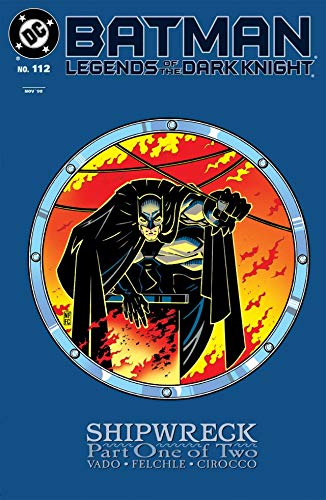
Batman
Legends of the Dark Knight #112
1998
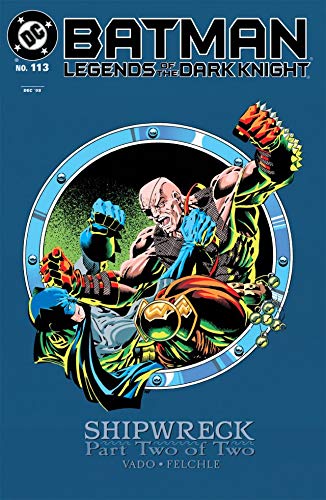
Batman
Legends of the Dark Knight #113
1998
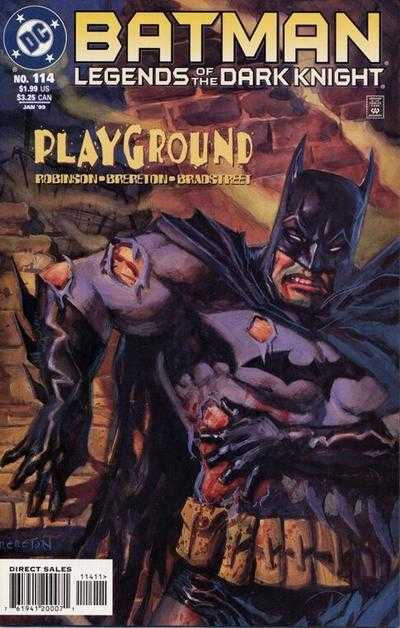
Batman
Legends of the Dark Knight #114
1999
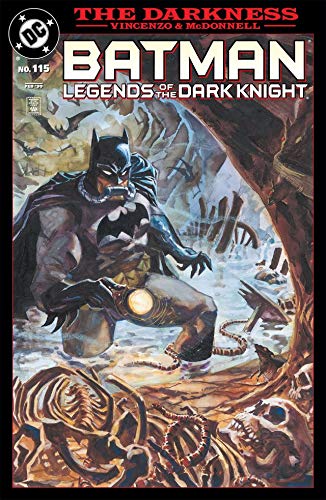
Batman
Legends of the Dark Knight #115
1998
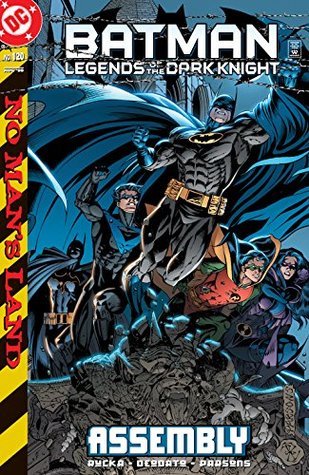
Batman
Legends of the Dark Knight #120
1999
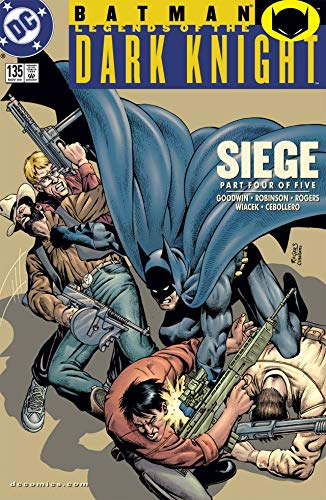
Batman
Legends of the Dark Knight #135
2000
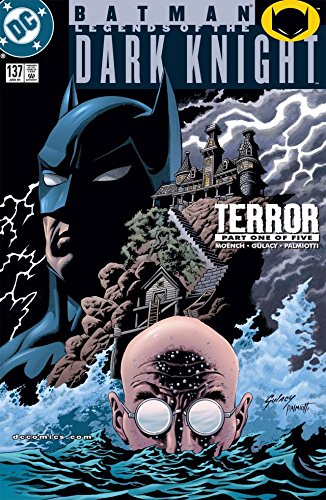
Batman
Legends of the Dark Knight #137
2000
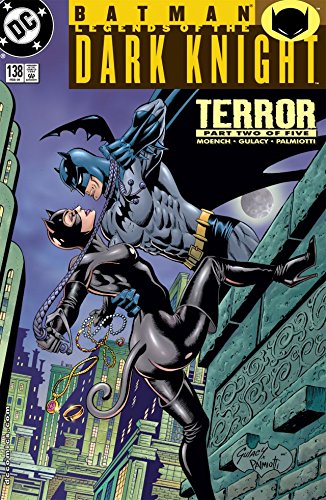
Batman
Legends of the Dark Knight #138
2000
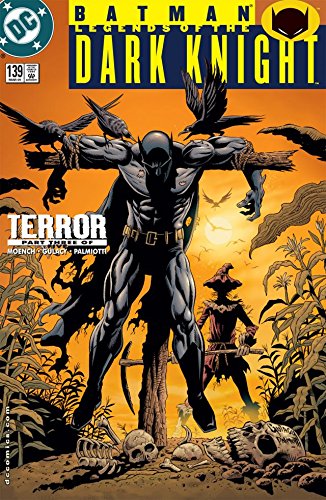
Batman
Legends of the Dark Knight #139
2001
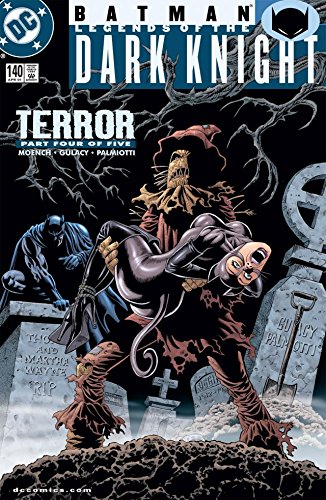
Batman
Legends of the Dark Knight #140
2001
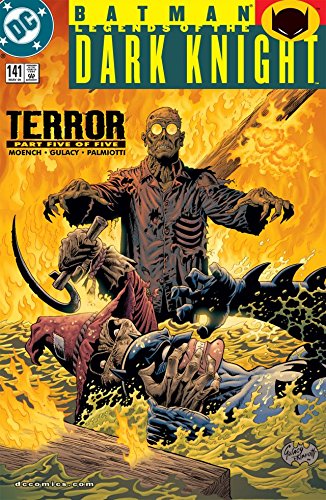
Batman
Legends of the Dark Knight #141
2001
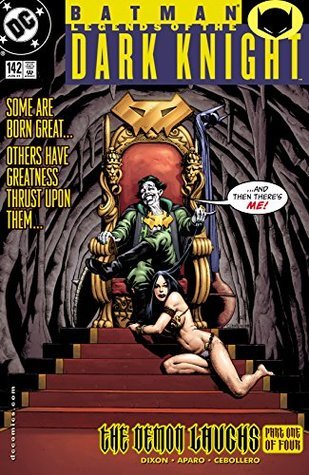
Batman
Legends of the Dark Knight #142
2001
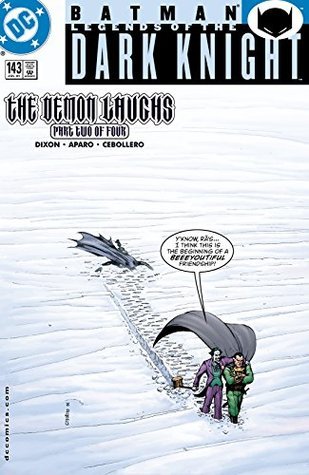
Batman
Legends of the Dark Knight #143
2001
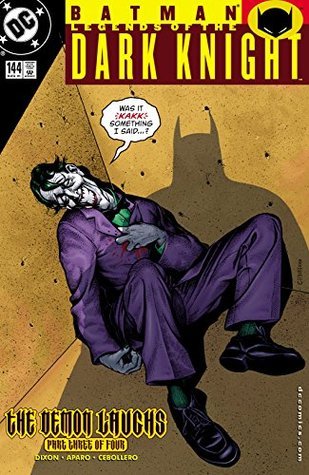
Batman
Legends of the Dark Knight #144
2001
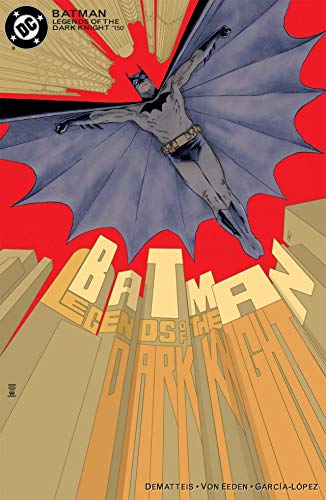
Batman
Legends of the Dark Knight #150
2001
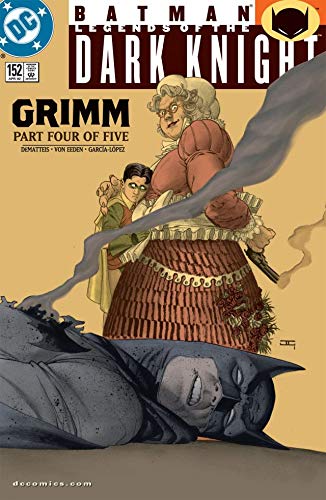
Batman
Legends of the Dark Knight #152
2002
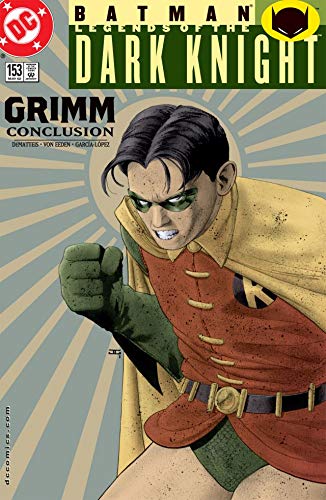
Batman
Legends of the Dark Knight #153
2002
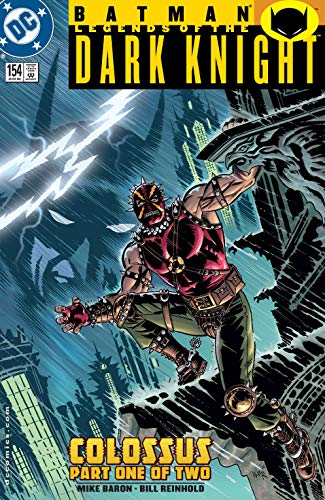
Batman
Legends of the Dark Knight #154
2002
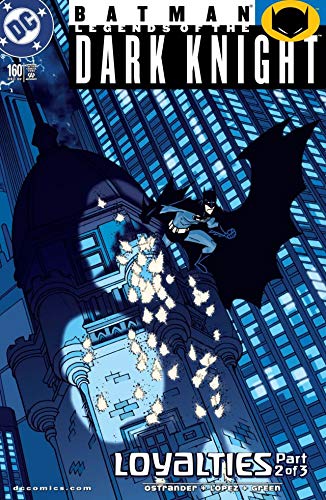
Batman
Legends of the Dark Knight #160
2002
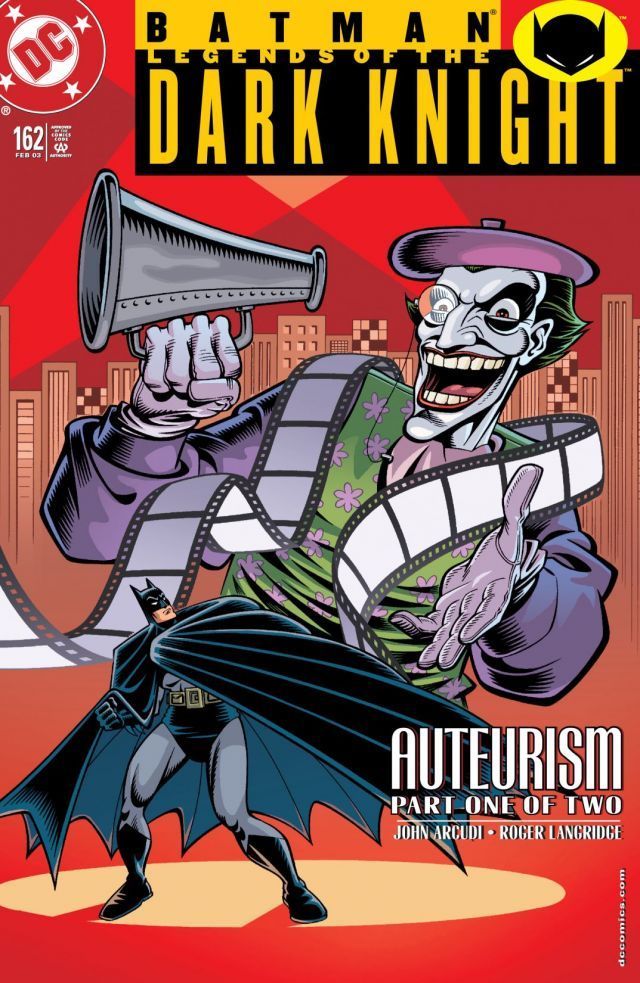
Batman
Legends of the Dark Knight #162
2002
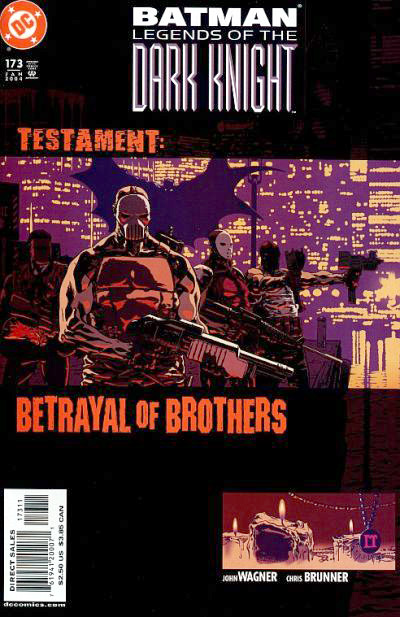
Batman
Legends of the Dark Knight #173
2003
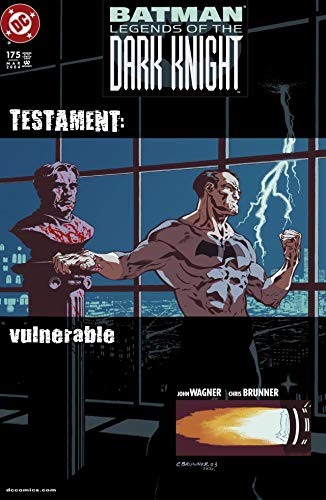
Batman
Legends of the Dark Knight #175
2004
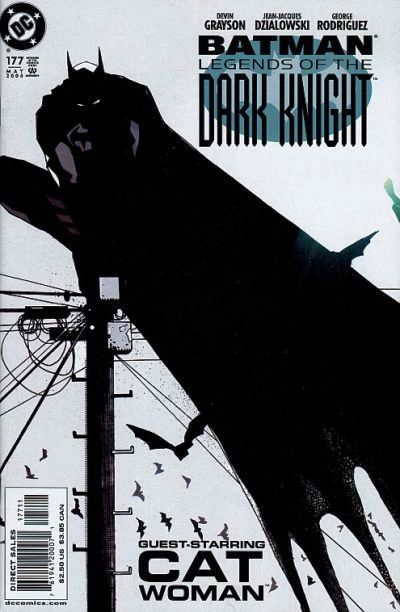
Batman
Legends of the Dark Knight #177
2004
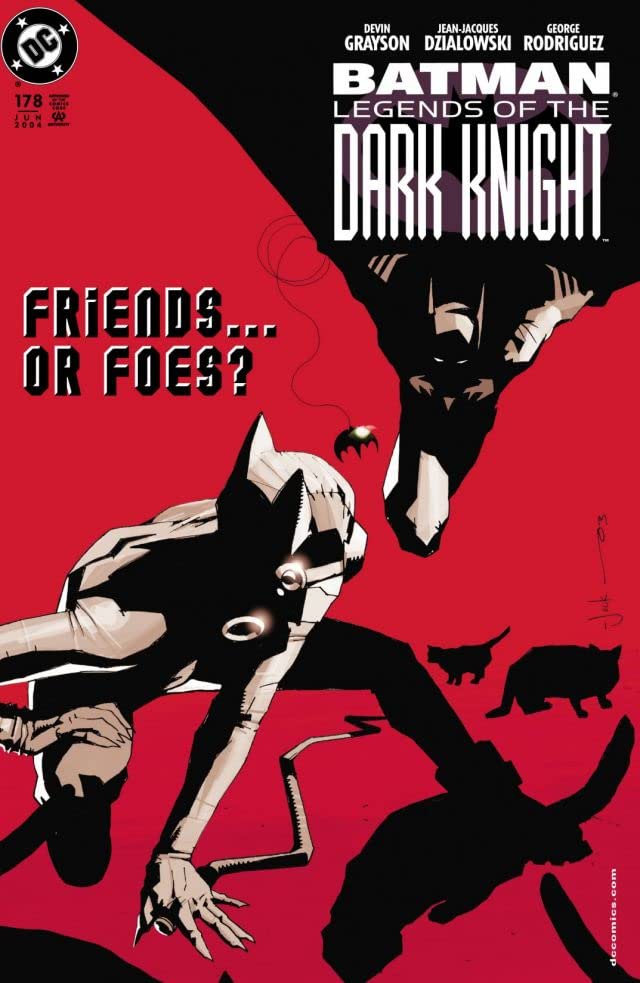
Batman
Legends of the Dark Knight #178
2004
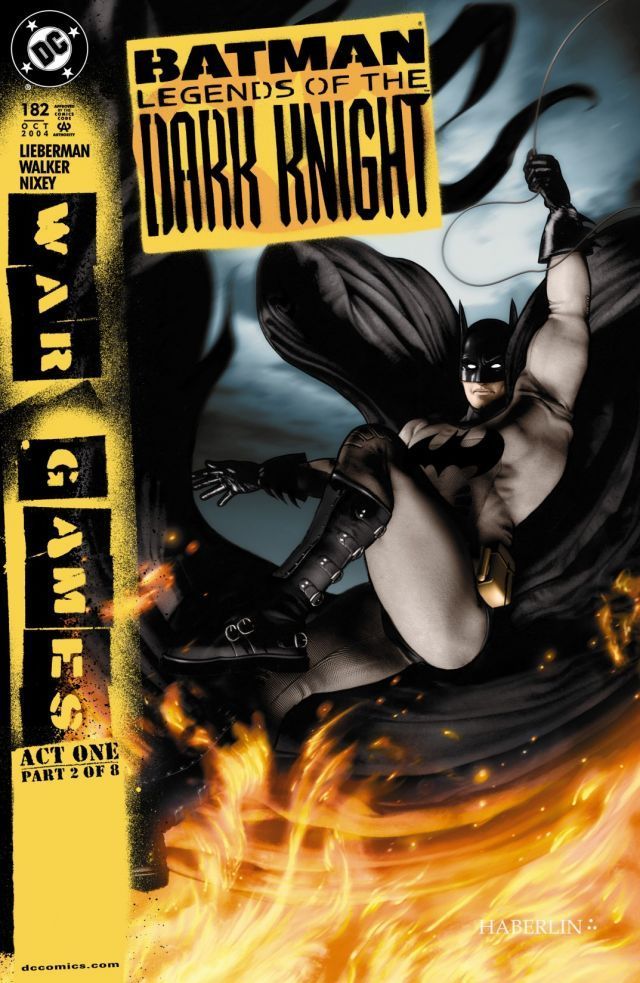
Batman
Legends of the Dark Knight #182
2004
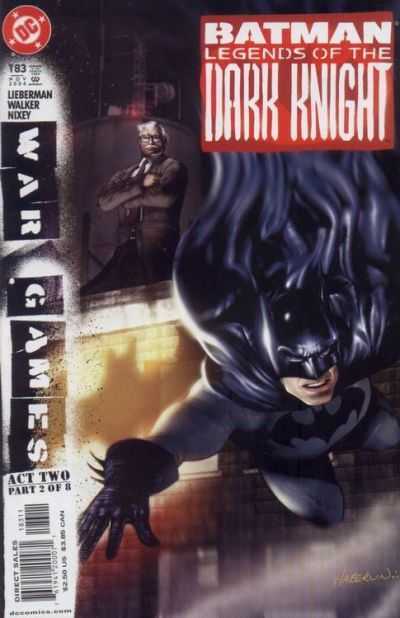
Batman
Legends of the Dark Knight #183
2004

Batman
War Games, Book One
2015
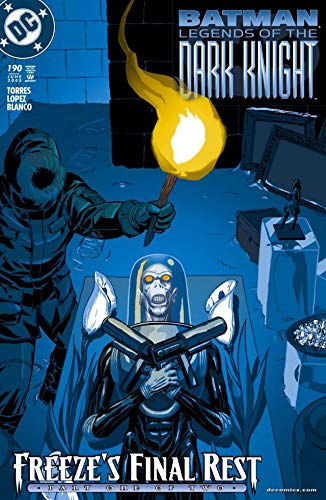
Batman
Legends of the Dark Knight #190
2005
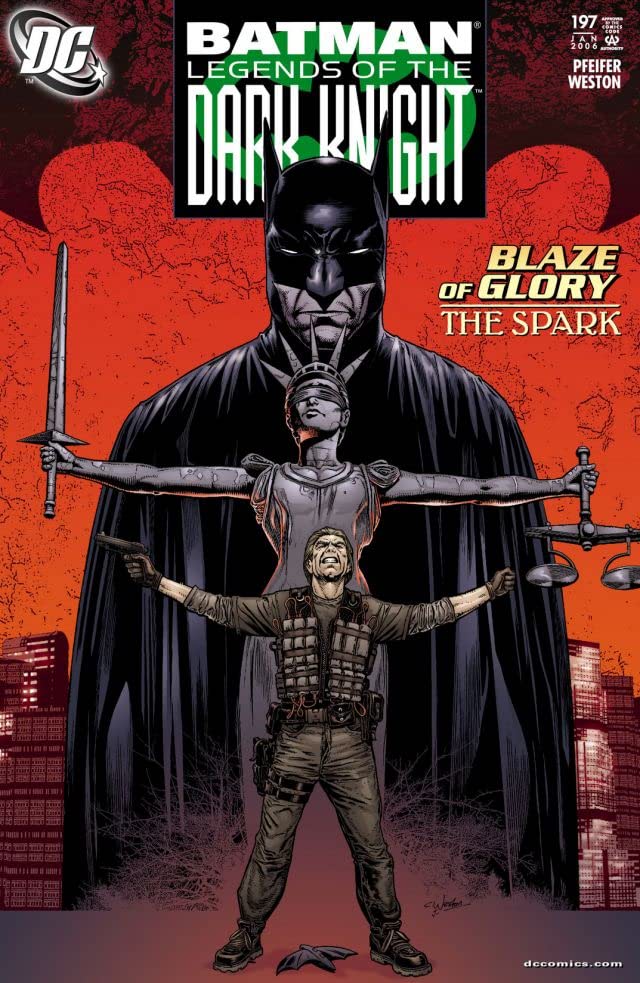
Batman
Legends of the Dark Knight #197
2005
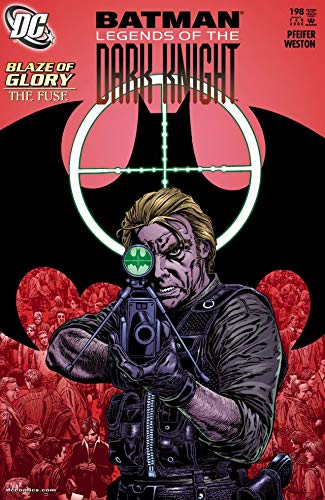
Batman
Legends of the Dark Knight #198
2005
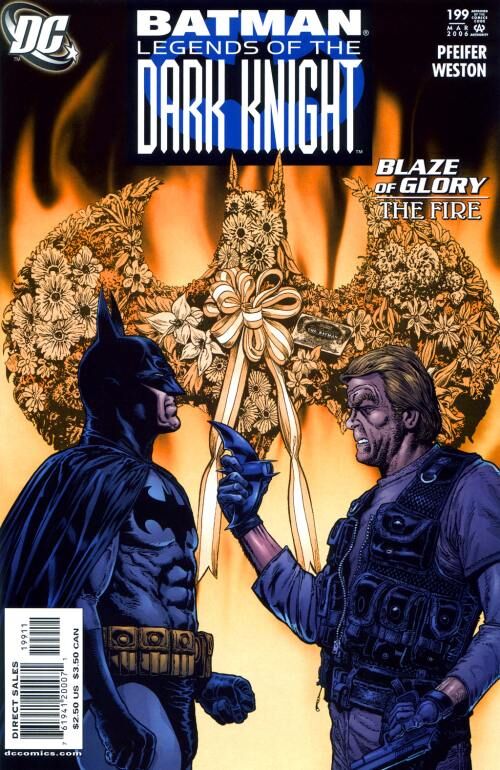
Batman
Legends of the Dark Knight #199
2006
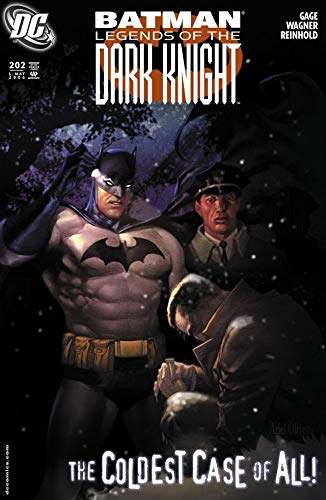
Batman
Legends of the Dark Knight #202
2006
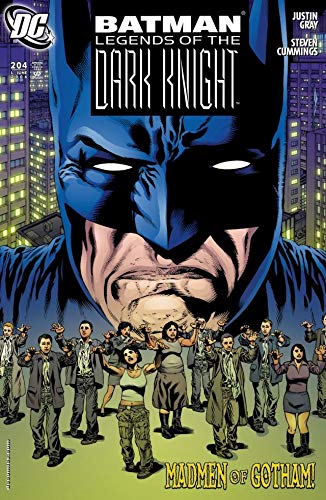
Batman
Legends of the Dark Knight #204
2006
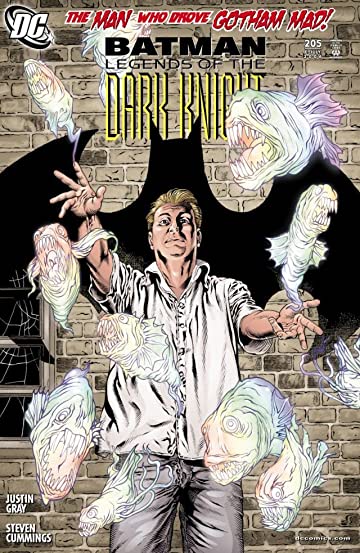
Batman
Legends of the Dark Knight #205
2006
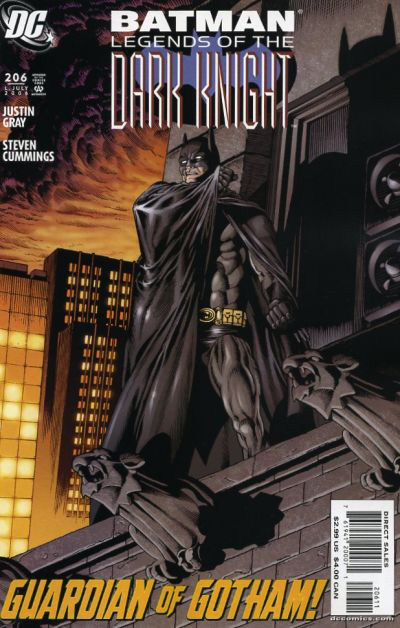
Batman
Legends of the Dark Knight #206
2006
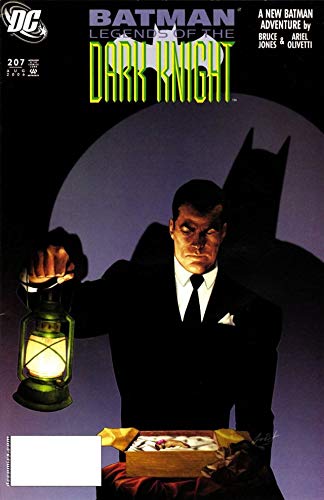
Batman
Legends of the Dark Knight #207
2006
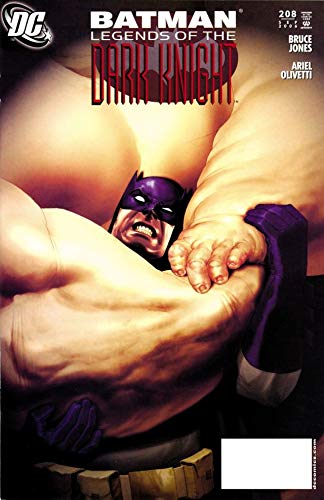
Batman
Legends of the Dark Knight #208
2006
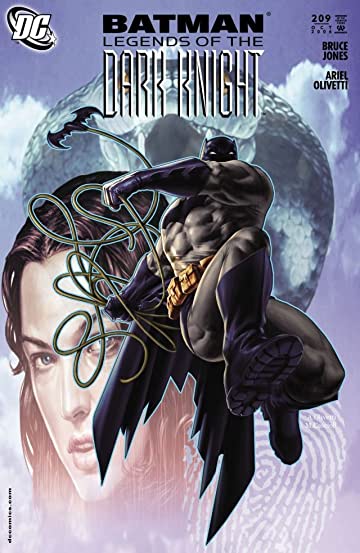
Batman
Legends of the Dark Knight 209
2006
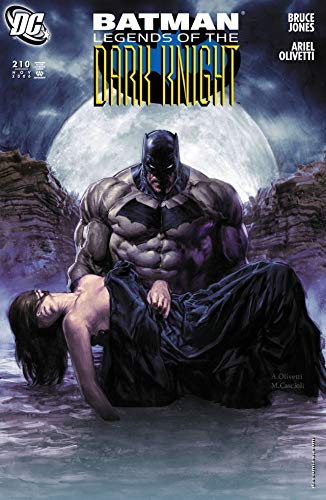
Batman
Legends of the Dark Knight #210
2006
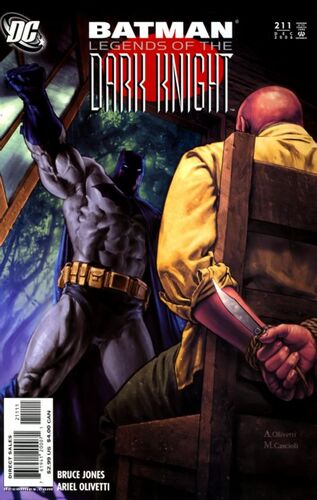
Batman
Legends of the Dark Knight 211
2006
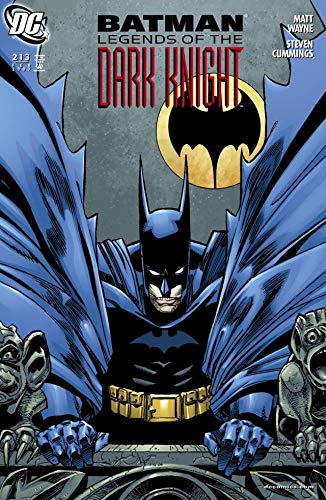
Batman
Legends of the Dark Knight #213
2006
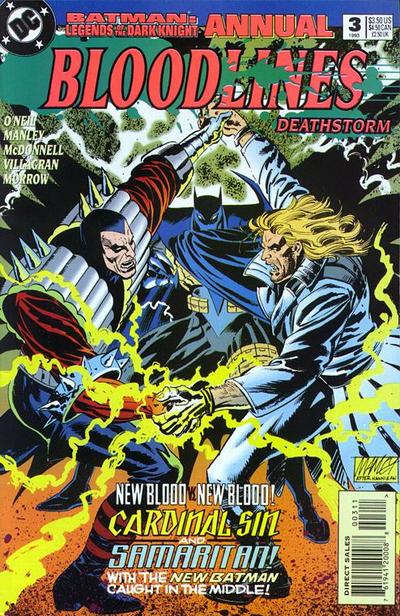
Batman
Legends of the Dark Knight Annual #3
1993
Batman
Legends of the Dark Knight Annual #4
1994
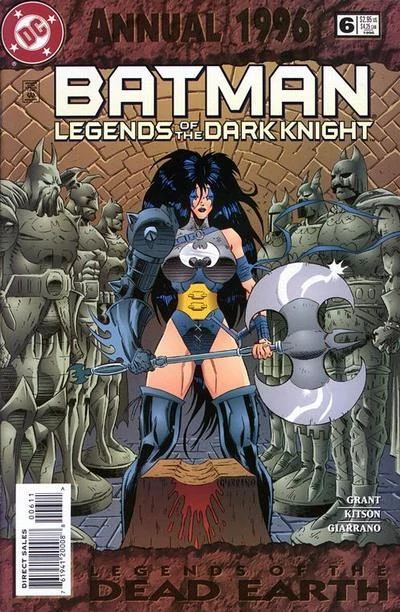
Batman
Legends of the Dark Knight Annual #6
1996
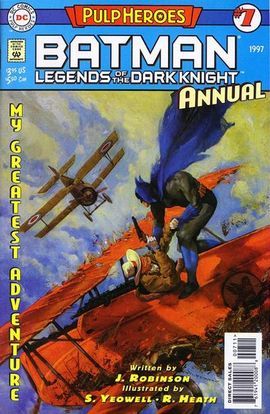
Batman
Legends of the Dark Knight Annual #7
1997
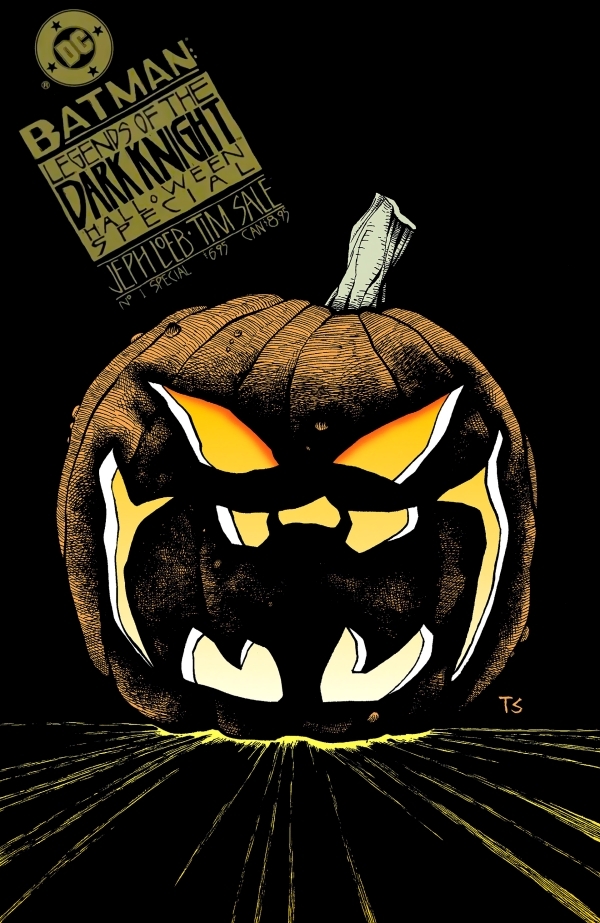
Batman
Legends of the Dark Knight Halloween Special #1
1993

Batman
Legends of the Dark Knight Halloween Special #2
1994

Batman
Legends of the Dark Knight Halloween Special #3
1995

Haunted Knight
1996
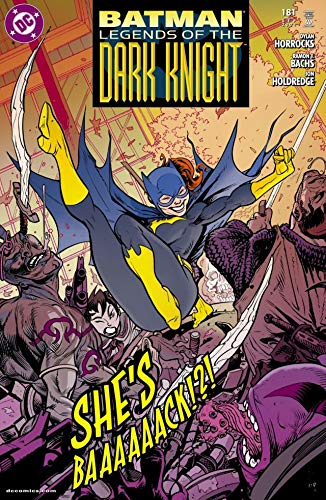
Batman
Legends of the Dark Knight #181
2004

Batman
Shaman
1989

Batman
Gothic
1990

Batman
Prey
1992

Batman
Prey
2001

Batman
Venom
1991

Batman
No Man's Land Vol. 2: New Edition
1999

Batman
Terror
2003

DC Comics Presents
Batman- Blink #1
2011

Batman
Irresistible
2003
Authors

Augustyn got his start in the industry in 1986 as an editor for Tru Studios' Trollords. He then edited Syphons and Speed Racer for NOW Comics in 1987. In 1988, he joined DC, starting out as a co-editor on Action Comics during its period as a weekly title. During the late 1980s and early 1990s Augustyn was an editor for DC Comics, where he edited The Flash, Justice League and the Impact Comics line of titles. Augustyn was recognized for his work in the industry with the Wizard Fan Award for Favorite Editor in 1994. He served as the managing editor of Visionary Comics Studio. As editor of The Flash beginning in 1989, Augustyn brought in Mark Waid as writer in 1992, which led to an acclaimed eight-year run. Under Augustyn's stewardship, the Flash was brought out from the shadow of his predecessors and increased his powers dramatically. Other Augustyn-Waid editor-writer partnerships included The Comet (DC/Impact, 1992) and Impulse (DC, 1995–1996). Augustyn currently works as story editor for publisher Red Giant Entertainment and their Giant-Size Comics line of free print comic book titles which debuted on May 3, 2014 as part of Free Comic Book Day.[


Joseph "Jeph" Loeb III is an Emmy and WGA nominated American film and television writer, producer and award-winning comic book writer. Loeb was a Co-Executive Producer on the NBC hit show Heroes, and formerly a producer/writer on the TV series Smallville and Lost. A four-time Eisner Award winner and five-time Wizard Fan Awards winner (see below), Loeb's comic book career includes work on many major characters, including Spider-Man, Batman, Superman, Hulk, Captain America, Cable, Iron Man, Daredevil, Supergirl, the Avengers, and Buffy the Vampire Slayer, much of which he has produced in collaboration with artist Tim Sale, who provides the comic art seen on Heroes.

In the late 1970s to early 1980s he drew fantasy ink pictures for the Dungeons & Dragons Basic and Expert game rulebooks. He first gained attention for his 1980s comic book series Elementals published by Comico, which he both wrote and drew. However, for reasons unknown, the series had trouble maintaining an original schedule, and Willingham's position in the industry remained spotty for many years. He contributed stories to Green Lantern and started his own independent, black-and-white comics series Coventry which lasted only 3 issues. He also produced the pornographic series Ironwood for Eros Comix. In the late 1990s Willingham reestablished himself as a prolific writer. He produced the 13-issue Pantheon for Lone Star Press and wrote a pair of short novels about the modern adventures of the hero Beowulf, published by the writer's collective, Clockwork Storybook, of which Willingham was a founding member. In the early 2000s he began writing extensively for DC Comics, including the limited series Proposition Player, a pair of limited series about the Greek witch Thessaly from The Sandman, and most notably the popular series Fables



Trevor Von Eeden is a Guyanese-American comics artist, actor and writer known for his work on such titles as Black Lightning, Batman, Green Arrow, Power Man and Iron Fist, and the biographical series The Original Johnson. (source: Wikipedia)

Will Pfeifer was born in 1967 in the town of Niles, Ohio. He attended Kent State University and graduated in 1989. He has resided in Rockford, Illinois since 1990, with his wife, Amy. Pfeifer, along with his comic writing duties, is the assistant features editor at the Rockford Register Star. He also writes a weekly DVD column for the Sunday paper.

Tom Peyer is an American comic book creator and editor. He is known for his 1999 revisioning of Golden Age super-hero Hourman, as well as his work on the Legion of Super-Heroes in the 1990s. An editor at DC Comics/Vertigo from 1987 to 1993, he served as assistant editor on Neil Gaiman's groundbreaking Sandman. Peyer has also worked for Marvel Comics, Wildstorm, and Bongo Comics. With John Layman, he wrote the 2007–2009 Tek Jansen comic book, based on the Stephen Colbert character.




Charles "Chuck" Dixon is an American comic book writer, perhaps best-known for long runs on Batman titles in the 1990s. His earliest comics work was writing Evangeline first for Comico Comics in 1984 (then later for First Comics, who published the on-going series), on which he worked with his then-wife, the artist Judith Hunt. His big break came one year later, when editor Larry Hama hired him to write back-up stories for Marvel Comics' The Savage Sword of Conan. In 1986, he began working for Eclipse Comics, writing Airboy with artist Tim Truman. Continuing to write for both Marvel and (mainly) Eclipse on these titles, as well as launching Strike! with artist Tom Lyle in August 1987 and Valkyrie with artist Paul Gulacy in October 1987, he began work on Carl Potts' Alien Legion series for Marvel's Epic Comics imprint, under editor Archie Goodwin. He also produced a three-issue adaptation of J. R. R. Tolkien's The Hobbit for Eclipse with artist David Wenzel between 1989 and 1990, and began writing Marc Spector: Moon Knight in June 1989. His Punisher OGN Kingdom Gone (August, 1990) led to him working on the monthly The Punisher War Journal (and later, more monthly and occasional Punisher titles), and also brought him to the attention of DC Comics editor Denny O'Neil, who asked him to produce a Robin mini-series. The mini proved popular enough to spawn two sequels - The Joker's Wild (1991) and Cry of the Huntress (1992) - which led to both an ongoing monthly series (which Dixon wrote for 100 issues before leaving to work with CrossGen Comics), and to Dixon working on Detective Comics from #644-738 through the major Batman stories KnightFall & KnightsEnd (for which he helped create the key character of Bane), DC One Million, Contagion, Legacy, Cataclysm and No Man's Land . Much of his run was illustrated by Graham Nolan. He was DC's most prolific Batman-writer in the mid-1990s (rivalled perhaps in history by Bill Finger and Dennis O'Neil) - in addition to writing Detective Comics he pioneered the individual series for Robin, Nightwing (which he wrote for 70 issues, and returned to briefly with 2005's #101) and Batgirl, as well as creating the team and book Birds of Prey . While writing multiple Punisher and Batman comics (and October 1994's Punisher/Batman crossover), he also found time to launch Team 7 for Jim Lee's WildStorm/Image and Prophet for Rob Liefeld's Extreme Studios. He also wrote many issues of Catwoman and Green Arrow, regularly having about seven titles out each and every month between the years 1993 and 1998. In March, 2002, Dixon turned his attention to CrossGen's output, salthough he co-wrote with Scott Beatty the origin of Barbara Gordon's Batgirl in 2003's Batgirl: Year One. For CrossGen he took over some of the comics of the out-going Mark Waid, taking over Sigil from #21, and Crux with #13. He launched Way of the Rat in June 2002, Brath (March '03), The Silken Ghost (June '03) and the pirate comic El Cazador (Oct '03), as well as editing Robert Rodi's non-Sigilverse The Crossovers. He also wrote the Ruse spin-off Archard's Agents one-shots in January and November '03 and April '04, the last released shortly before CrossGen's complete collapse forced the cancellation of all of its comics, before which Dixon wrote a single issue of Sojourn (May '04). Dixon's Way of the Rat #24, Brath #14 and El Cazador #6 were among the last comics released from the then-bankrupt publisher. On June 10, 2008, Dixon announced on his forum that he was no longer "employed by DC Comics in any capacity."

Dwayne McDuffie was an American writer of comic books and television. His notable works included creating the animated series Static Shock, writing and producing the animated series Justice League Unlimited, and co-founding the comic book company Milestone Media. He co-hosted a radio comedy program, and also wrote under a pseudonym for stand-up comedians and late-night television comedy programs. While working as a copy-editor for a financial magazine, a friend got him an interview for an assistant editor position at Marvel Comics. While on staff at Marvel as Bob Budiansky's assistant on special projects, McDuffie also scripted stories for the company. His first major work was Damage Control, a series about the company that shows up between issues and tidies up the mess left by the latest round of superhero/supervillain battles. While an editor at Marvel, he submitted a spoof proposal for a comic entitled Teenage Negro Ninja Thrasher in response to Marvel's treatment of its black characters. Becoming a freelancer in early 1990, McDuffie followed that with dozens of various comics titles for Marvel comics, DC Comics, and Archie Comics. In 1992, wanting to express a multi-cultural sensibility that he felt was missing in comic books, McDuffie co-founded Milestone Media, a comic book company owned by African-Americans. After Milestone had ceased publishing new comics, Static was developed into an animated series Static Shock. McDuffie was hired to write and story-edit on the series, writing 11 episodes. McDuffie was hired as a staff writer for the animated series Justice League and was promoted to story editor and producer as the series became Justice League Unlimited. During the entire run of the animated series, McDuffie wrote, produced, or story-edited 69 out of the 91 episodes. McDuffie also wrote the story for the video game Justice League Heroes. McDuffie was hired to help revamp and story-edit Cartoon Network's popular animated Ben 10 franchise with Ben 10: Alien Force, continuing the adventures of the ten-year-old title character into his mid and late teenage years. During the run of the series, McDuffie wrote episode 1-3, 14, 25-28, 45 and 46 and/or story-edited all forty-six episodes. On February 22, 2011, McDuffie died from complications due to a surgical procedure performed the previous evening. http://en.wikipedia.org/wiki/Dwayne_M...

Geoff Johns originally hails from Detroit, Michigan. He attended Michigan State University, where he earned a degree in Media Arts and Film. He moved to Los Angeles in the late 1990s in search of work within the film industry. Through perseverance, Geoff ended up as the assistant to Richard Donner, working on Conspiracy Theory and Lethal Weapon 4. During that time, he also began his comics career writing Stars and S.T.R.I.P.E. and JSA (co-written with David S. Goyer) for DC Comics. He worked with Richard Donner for four years, leaving the company to pursue writing full-time. His first comics assignments led to a critically acclaimed five-year run on the The Flash. Since then, he has quickly become one of the most popular and prolific comics writers today, working on such titles including a highly successful re-imagining of Green Lantern, Action Comics (co-written with Richard Donner), Teen Titans, Justice Society of America, Infinite Crisis and the experimental breakout hit series 52 for DC with Grant Morrison, Greg Rucka and Mark Waid. Geoff received the Wizard Fan Award for Breakout Talent of 2002 and Writer of the Year for 2005, 2006, 2007, and 2008 as well as the CBG Writer of the Year 2003 thru 2005, 2007 and CBG Best Comic Book Series for JSA 2001 thru 2005. Geoff also developed BLADE: THE SERIES with David S. Goyer, as well as penned the acclaimed “Legion” episode of SMALLVILLE. He also served as staff writer for the fourth season of ROBOT CHICKEN. Geoff recently became a New York Times Bestselling author with the graphic novel Superman: Brainiac with art by Gary Frank.

Mike W. Barr is an American writer of comic books, and mystery, and science fiction novels. Barr's debut as a comics professional came in DC Comics' Detective Comics #444 (Dec. 1974-Jan. 1975), for which he wrote an 8-page back-up mystery feature starring the Elongated Man. Another Elongated Man story followed in Detective Comics #453 (November 1975). He wrote text articles and editorial replies in letter columns for the next few years. By mid-1980 he was writing regularly for both DC and Marvel, including stories for Marvel Team-Up, Mystery in Space, Green Lantern, and various Batman titles. Legion of Super-Heroes #277 (July 1981) saw him take on editorial duties at DC, while writing issues of DC's Star Trek comic, for whom he created the native American character Ensign Bearclaw and a pacifist Klingon named Konom. In December 1982, he and artist Brian Bolland began Camelot 3000, a 12 issue limited series that was one of DC Comics' first direct market projects. In August 1983, Barr created what may well be his most enduring work, the monthly title Batman and the Outsiders with art by Jim Aparo. Barr wrote every issue of the original series, and its Baxter paper spinoff, The Outsiders. His other comics work includes Mantra and Maze Agency as well as the 1987 OGN hardcover book Batman: Son of the Demon (with art by Jerry Bingham), proceeds from which reputedly "restored DC Comics to first place in sales after fifteen years." This title, and Barr's work on Batman with artist Alan Davis have been cited by Grant Morrison as key inspirations for his recent (2006) run on the Batman title. In 2007, he wrote a two-part story for the pages of DC's JLA: Classified (#47-48, Jan-Feb 2008), returned to the Outsiders with Outsiders: Five of a Kind—Katana/Shazam #1 (Oct 2007), contributed to Tokyopop's Star Trek: The Manga, and relaunched Maze Agency at IDW Publishing. He has also scripted many of Bongo Comics' Simpsons titles, including a Christmas story for 2010. In May 2010, the Invisible College Press published Barr's science fiction/fantasy novel, Majician/51, about the discoveries of a scientist working at Area 51.

See also John Harkness. Steve Englehart went to Wesleyan University in Middletown, Connecticut. After a stint in the Army, he moved to New York and began to write for Marvel Comics. That led to long runs on Captain America, The Hulk, The Avengers, Dr. Strange, and a dozen other titles. Midway through that period he moved to California (where he remains), and met and married his wife Terry. He was finally hired away from Marvel by DC Comics, to be their lead writer and revamp their core characters (Superman, Batman, Wonder Woman, Flash, and Green Lantern). He did, but he also wrote a solo Batman series (immediately dubbed the "definitive" version) that later became Warner Brothers' first Batman film (the good one). After that he left comics for a time, traveled in Europe for a year, wrote a novel (The Point Man™), and came back to design video games for Atari (E.T., Garfield). But he still liked comics, so he created Coyote™, which within its first year was rated one of America's ten best series. Other projects he owned (Scorpio Rose™, The Djinn™) were mixed with company series (Green Lantern [with Joe Staton], Silver Surfer, Fantastic Four). Meanwhile, he continued his game design for Activision, Electronic Arts, Sega, and Brøderbund. And once he and Terry had their two sons, Alex and Eric, he naturally told them stories. Rustle's Christmas Adventure was first devised for them. He went on to add a run of mid-grade books to his bibliography, including the DNAgers™ adventure series, and Countdown to Flight, a biography of the Wright brothers selected by NASA as the basis for their school curriculum on the invention of the airplane. In 1992 Steve was asked to co-create a comics pantheon called the Ultraverse. One of his contributions, The Night Man, became not only a successful comics series, but also a television show. That led to more Hollywood work, including animated series such as Street Fighter, GI Joe, and Team Atlantis for Disney.


James P. "Jim" Starlin is an American comic book writer and artist. With a career dating back to the early 1970s, he is best known for "cosmic" tales and space opera; for revamping the Marvel Comics characters Captain Marvel and Adam Warlock; and for creating or co-creating the Marvel characters Thanos and Shang-Chi, Master of Kung Fu. Death and suicide are recurring themes in Starlin's work: Personifications of Death appeared in his Captain Marvel series and in a fill-in story for Ghost Rider; Warlock commits suicide by killing his future self; and suicide is a theme in a story he plotted and drew for The Rampaging Hulk magazine. In the mid-1970s, Starlin contributed a cache of stories to the independently published science-fiction anthology Star Reach. Here he developed his ideas of God, death, and infinity, free of the restrictions of mainstream comics publishers' self-censorship arm, the Comics Code Authority. Starlin also drew "The Secret of Skull River", inked by frequent collaborator Al Milgrom, for Savage Tales #5 (July 1974). When Marvel Comics wished to use the name of Captain Marvel for a new, different character,[citation needed] Starlin was given the rare opportunity to produce a one-shot story in which to kill off a main character. The Death of Captain Marvel became the first graphic novel published by the company itself. ( In the late 1980s, Starlin began working more for DC Comics, writing a number of Batman stories, including the four-issue miniseries Batman: The Cult (Aug.-Nov. 1988), and the storyline "Batman: A Death in the Family", in Batman #426-429 (Dec. 1988 – Jan. 1989), in which Jason Todd, the second of Batman's Robin sidekicks, was killed. The death was decided by fans, as DC Comics set up a hotline for readers to vote on as to whether or not Jason Todd should survive a potentially fatal situation. For DC he created Hardcore Station.

Grant Morrison has been working with DC Comics for twenty five years, after beginning his American comics career with acclaimed runs on ANIMAL MAN and DOOM PATROL. Since then he has written such best-selling series as JLA, BATMAN and New X-Men, as well as such creator-owned works as THE INVISIBLES, SEAGUY, THE FILTH, WE3 and JOE THE BARBARIAN. In addition to expanding the DC Universe through titles ranging from the Eisner Award-winning SEVEN SOLDIERS and ALL-STAR SUPERMAN to the reality-shattering epic of FINAL CRISIS, he has also reinvented the worlds of the Dark Knight Detective in BATMAN AND ROBIN and BATMAN, INCORPORATED and the Man of Steel in The New 52 ACTION COMICS. In his secret identity, Morrison is a "counterculture" spokesperson, a musician, an award-winning playwright and a chaos magician. He is also the author of the New York Times bestseller Supergods, a groundbreaking psycho-historic mapping of the superhero as a cultural organism. He divides his time between his homes in Los Angeles and Scotland.


Doug Moench, is an American comic book writer notable for his Batman work and as the creator of Black Mask, Moon Knight and Deathlok. Moench has worked for DC Comics, Marvel Comics, Dark Horse Comics and many other smaller companies; he has written hundreds of issues of many different comics, and created dozens of characters, such as Moon Knight. In 1973, Moench became the de facto lead writer for the Marvel black-and-white magazine imprint Curtis Magazines. He contributed to the entire runs of Planet of the Apes, Rampaging Hulk (continuing on the title when it changed its name to The Hulk!) and Doc Savage, while also serving as a regular scribe for virtually every other Curtis title during the course of the imprint's existence. Moench is perhaps best known for his work on Batman, whose title he wrote from 1983–1986 and then again from 1992–1998. (He also wrote the companion title Detective Comics from 1983–1986.) Moench is a frequent and longtime collaborator with comics artist Paul Gulacy. The pair are probably best known for their work on Shang-Chi: Master of Kung Fu, which they worked on together from 1974–1977. They also co-created Six from Sirius, Slash Maraud, and S.C.I. Spy, and have worked together on comics projects featuring Batman, Conan the Barbarian and James Bond. Moench has frequently been paired with the artist and inker team of Kelley Jones and John Beatty on several Elseworlds Graphic Novels and a long run of the monthly Batman comic.

Dennis "Denny" O'Neil was a comic book writer and editor best known for his work for Marvel Comics and DC Comics from the 1960s through the 1990s, and Group Editor for the Batman family of titles until his retirement. His best-known works include Green Lantern/Green Arrow and Batman with Neal Adams, The Shadow with Michael Kaluta and The Question with Denys Cowan. As an editor, he is principally known for editing the various Batman titles. From 2013 unti his death, he sat on the board of directors of the charity The Hero Initiative and served on its Disbursement Committee.




